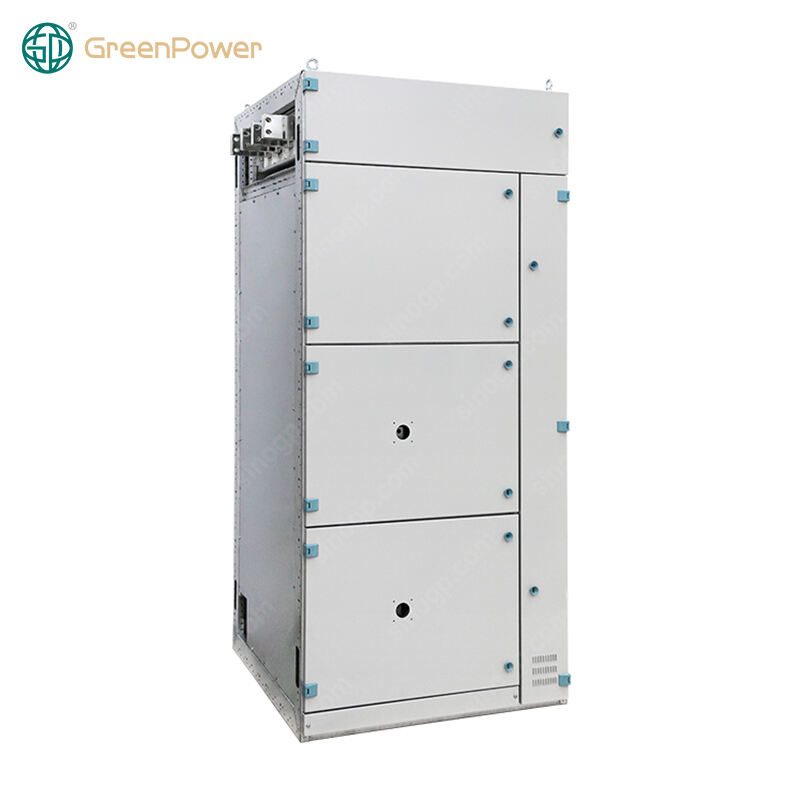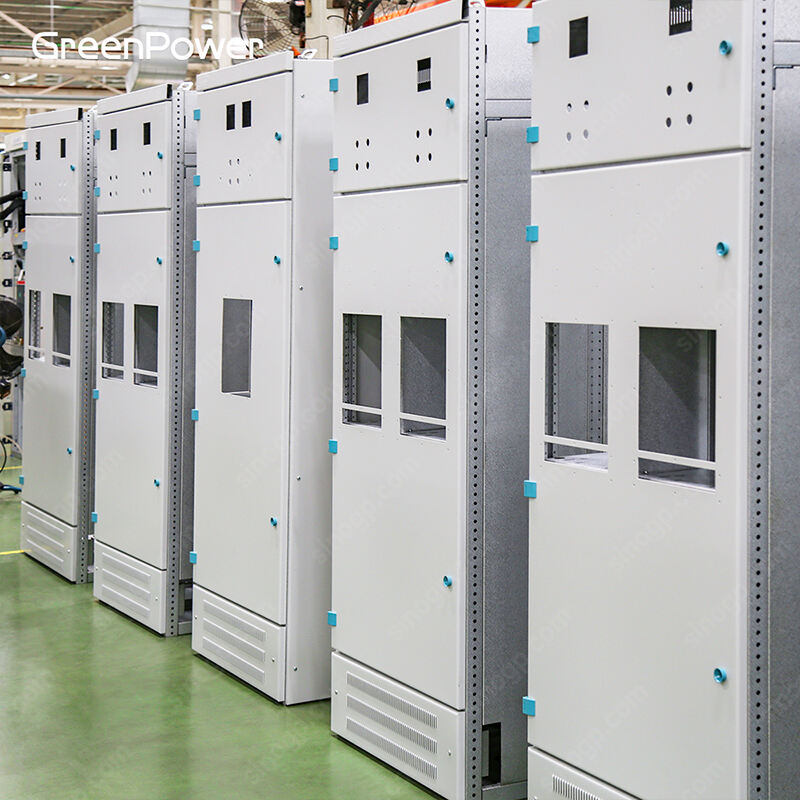Ток тарату қораптары орта және төменгі кернеуді таратудың маңызды элементтері болып табылады. Сондықтан бұл таңдау жылдар бойы өнімнің сапасы мен жұмыс істеу қауіпсіздігіне әсер ететіндіктен, сенімді ток тарату қорабы зауытын таңдау маңызды. Сенімді ток тарату қорабы зауыттары сапасыз материалдардың, нашар жұмыстың және жеткізу уақытының кешігуінің алдын ала алдын алумен қатар, тиімді шешімдер ұсынады. Өнеркәсіптік құрылыс, коммерциялық кешендерге электр энергиясын тарату немесе жаңартылатын энергия жобаларын дамыту кезінде зауыттың таңдауы электр жүйесінің жалпы тұрақтылығына үлкен әсер етеді. Келесі тармақтар болашақ клиентке дұрыс ток тарату қорабы зауытын таңдауға көмектесетін негізгі критерийлерді көрсетеді.
Тарату құрылғысы зауытын таңдаған кезде бағаланатын бірінші нәрселердің бірі — біліктіліктер мен сертификаттар. Олар халықаралық және ұлттық стандарттарға сәйкестікті, сонымен қатар зауыттың әртүрлі салалық стандарттарға сай болуын көрсетеді. Тарату құрылғысы зауыты мынадай негізгі сертификаттарға ие болуы тиіс: Халықаралық электротехникалық комиссия (IEC) стандарттары (мысалы, қосқыш аппаратура үшін IEC 62271), ISO 9001 (сапа басқару жүйесі), ISO 14001 (қоршаған ортаны басқару жүйесі) және OHSAS 18001 (еңбек гигиенасы мен қауіпсіздігін басқару жүйесі). Бұл тарату құрылғысы үшін тұрақты өндіріс пен тиімді сапа бақылау жүйелік процестерінің бар екенін көрсетеді. Сонымен қатар аймақтық нарықтар үшін зауытта жергілікті сертификаттар болуы тиіс — Еуропалық нарық үшін CE, Солтүстік Америка үшін UL және Қытай нарығы үшін CCC, бұл тарату құрылғыларының жергілікті электр қауіпсіздігі нормаларына сай келетінін көрсетеді. Мысалы, Еуропадағы өнеркәсіптік жобаларға өнімдер жеткізетін тарату құрылғысы зауытын алайық. Мұндай зауытта Еуropa Одағының қауіпсіздік және электромагниттік үйлесімділік талаптарына сай келетінін көрсететін CE сертификаты болуы тиіс. Ірі электр компаниялары немесе инфрақұрылымдық жобалармен ынтымақтастықта болу үшін бизнес лицензиялары, өндіріс рұқсаттары мен жобалық тәжірибе сертификаттарын тексеру қажет, себебі бұл заңды операциялық біліктілік пен практикалық салалық тәжірибеге ие болуын қамтамасыз етеді.

Тарату қондырғысы зауытының сенімділігін анықтағанда, өндірістік қуат пен техникалық күш ірі тиелімді тапсырыстар мен дайындамалы сұраныстарды қамтамасыз етуі тиіс. Өндірістік қуатты зауыттың өндірістік масштабы арқылы бағалауға болады. Оған цех ауданы, өндірістік желілер саны және жылдық шығарылым кіреді. МНС тарату қондырғылары, GGD тарату қондырғылары және сақиналы негізгі блок тарату қондырғылары сияқты әртүрлі түрлері үшін бөлінген жеткілікті өндірістік желілермен қоса CNC соққы қондырғылары, лазерлі кесу қондырғылары және автоматтандырылған жинау желілері сияқты алдыңғы қатарлы құрал-жабдықтар болуы тиіс. Бұлар шкаф корпусы, өткізгіш шина және тарату қондырғысының өзі сияқты компоненттердің дәлдігі мен сапасын сақтауға көмектеседі. Техникалық күш тұрғысынан алғанда, зауыттың зерттеу және дамыту тобын инженерлер саны, жұмыс тәжірибесінің жылдары және құрылғыларды жобалау мен дайындамалы түрде орындау мүмкіндіктері арқылы бағалауға болады. Зауыт белгілі жобалар үшін интеллектуалды бақылау немесе суық климатқа бейімделу сияқты ерекше функциялары бар дайындамалы тарату қондырғыларын жобалау мен сынақтан өткізу мүмкіндігіне ие болуы тиіс. Өнімдердің жобалық сызбалары, сынақ нәтижелері сияқты техникалық құжаттамалар тарату қондырғысы технологиясы бойынша зауыттың біліктілігін растай алады.**Тарату қондырғысы зауытының сапа бақылау жүйесін тексеріңіз**
Сапа бақылауының күшті жүйесіне ие болу – сенімді тарату қорабы зауытының ерекшелігі. Бұл тарату қораптарының қауіпсіздігі мен ұзақ мерзімділігінің маңызды көрсеткіші болып табылады. Тарату қорабы зауытын бағалай отырып, шикізаттан бастап дайын өнімдерді тексеруге дейінгі сапа басқаруын қамтитын үдерістің бақылау жүйелерін сұраңыз. Біріншіден, шикізат алу жүйесін тексеріңіз: сенімді тарату қорабы зауыты сертификатталған металл өндірушілерден мыс шинадан және сертификатталған химиялық өндірушілерден диэлектрик материалдардан материалдар алуы керек және келіп түскен материалдардың сапасын бақылауды жүргізуі қажет (мысалы, мыстың өткізгіштігін және эпоксид смоласының изоляциялық қабілетін тексеру). Екіншіден, өндіру кезіндегі зауыттың сапа бақылау жүйесін бағалаңыз: жинау үдерісі жүріп жатқан кезде зауытта шина қосылысының моменті мен модульдердің туралауы сияқты нақты бақылау нүктелері үшін арнайы тексерушілер болуы керек және стандарттарды қатаң сақтау үшін момент ключтері мен изоляция тестерлері сияқты нақты құралдарды пайдалану қажет.

Үшіншіден, зауыттың дайын өнімдерді сынақтан өткізу мүмкіндіктерін анықтаңыз: беделді тарату қораптарын жасаушылардың өзіндік орнатылған сынақ құралдары болуы керек, оған электрлік сипаттамаларды тексеру (мысалы, айнымалы кернеуде ұстау сынағы, жартылай разрядты сынау), механикалық сипаттамаларды тексеру (мысалы, жұмыс істеу циклін сынау) және қоршаған ортаға бейімделуін тексеру (мысалы, жоғары температура, жоғары ылғалдылық) үшін құрал-жабдықтары бар зертхананы қосу керек. Шығарылмас бұрын әрбір тарату қорабы жартылай разрядтың болмауын қамтамасыз ету үшін 100% жартылай разряд сынағынан өтуі тиіс. Сапаны қамтамасыз ету процедураларын бақылау үшін сіз зауыт аумағы мен зертханаға баруыңызға болады.
Тарату қораптары зауытын таңдау кезінде сапа мен сенімділік негізгі факторлар болып табылады. Сапалы өнімдерден басқа, тарату қораптары зауыты тарату қорабының тұтастай жұмыс істеу мерзімі бойынша үздіксіз кепілдікке қабылдау қызметін қамтамасыз етуі тиіс. Тарату қорабы зауытын таңдаған кезде кепілдік мерзімі ішінде жерінде тексеру, техникалық қызмет көрсету және ауыстыру бөлшектерінің қолжетімділігін қамтитын кепілдікке қабылдау қызметі шарты туралы сұраңыз. Кепілдікке қабылдау қызметі белгіленген уақыт ішінде (мысалы, 24 сағат ішінде) шақыруларға қызмет көрсетуді де қамтиды. Мысалы, кепілдікке қабылдау қызметі орнатылғаннан кейінгі уақытта тарату қорабының дұрыс жұмыс істеуін қамтамасыз етуге мүмкіндік береді. Сонымен қатар, зауыттың жобалар тәжірибесін қарастырыңыз. Сіздің жобаңызға ұқсас жобалармен (мысалы, күн энергия станциялары, өнеркәсіптік қондырғылар, коммерциялық орталықтар) кең тәжірибеге ие зауыт сіздің талаптарыңызды жақсы түсінуі және одан да тиімді шешімдер ұсынуы мүмкін. Мысалы, аймағыңыздағы тамақ өнеркәсібі саласына қызмет көрсететін тарату қорабы зауыты ылғалдылықтан қорғау және коррозияға қарсы тарату қорабы талаптарын түсінуі тиіс. Бұл сонымен қатар жобаның мерзімін сақтау және туындауы мүмкін қиындықтармен жұмыс істеу қабілетін бағалау негізін қамтамасыз етеді.
Тарату қондырғылары зауытының саладағы репутациясы және ағымдағы тұтынушылардан алынған пікірлер – зауыттың сенімділігін көрсететін маңызды көрсеткіштер болып табылады. Көптеген тұтынушылар мен болашақ клиенттер тарату қондырғылары зауытының репутациясын сала ішіндегі орны мен «Топтық 10 Тарату Құрылғылары Шығарушылары» сияқты марапаттары немесе баспасөзде жарияланулары арқылы бағалайды. Зауыттың рұқсат еткен өткен тұтынушыларымен байланысқа түсу арқылы тұтынушылардан алынған пікірлерді бағалауға болады. Өнім сапасы, жеткізу және кейінгі қызмет көрсету – тұтынушылардың пікірлерінің маңызды салалары болып табылады. Салалық форумдардағы немесе тарату қондырғылары зауытына баға берілген B2B контактілердегі тұтынушылардың оң және теріс пікірлері пайдалы болуы мүмкін, бірақ танымалдық мақсатта берілген пікірлерге назар аудару керек. Тұтынушылар зауыт өнімдеріне кейінгі қызмет көрсетудің жарамды екенін айтқан жағдайларды немесе өнімдердің төмен дәрежедегі істен шығу жиілігі туралы пікірлерді есте сақтаңыз. Сонымен қатар тұтынушылармен қарым-қатынас ұзақтығын тексеріңіз. Толық қанағаттанған деп есептелу үшін клиенттер идеалды түрде зауытпен ұзақ уақыт бойы байланыста болуы керек. Тарату қондырғылары зауыты шешілмеген шағымдар туралы ешқандай репутацияға ие болмауы керек. Бұл сатып алу мәселелерін жеңілдетеді.
 Қызықты жаңалықтар
Қызықты жаңалықтар2026-02-02
2026-01-23
2026-01-20
2026-01-18
2026-01-16
2026-01-15